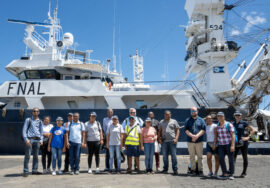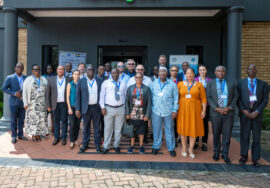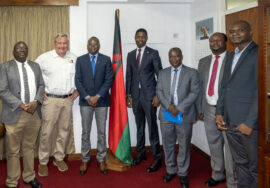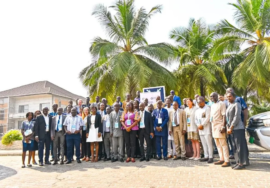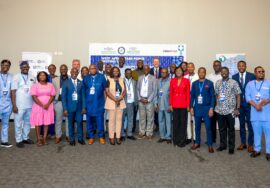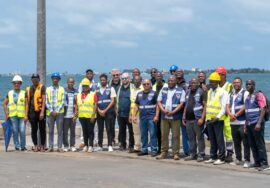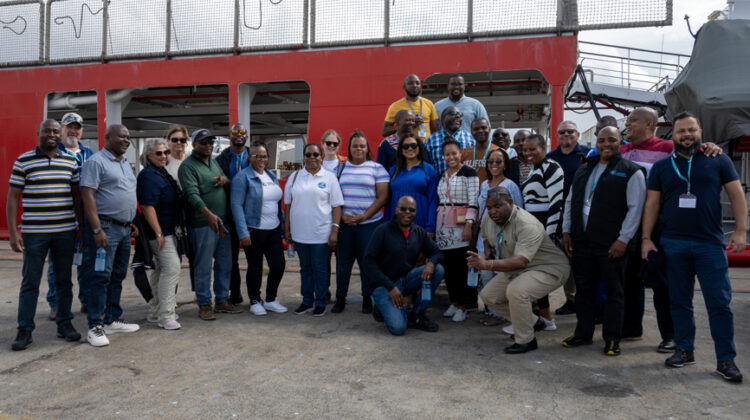
First meeting of the SADC MCSCC Task Force takes place.
December 2023-Per Erik Bergh (CEO and Managing Director), Sandy Davies (Technical Director), Andréa Durighello (Fisheries Expert), JD Kotze (Investigator) and Malebogo Seofeleng (Project Administrator) travelled to Cape Town, South Africa, for the inaugural meeting of the Operational Task Force of the SADC Monitoring, Control and Surveillance Coordination Centre (MCSCC Task Force).
This meeting is the first since the entry into force of the MCSCC Charter in April 2023. With this new milestone achieved, priority is now on advancing all the processes linked to the operationalisation of the MCSCC, including the key function of the MCSCC to establish a regional register of fishing vessels operating in the SADC waters.
To formalise the MCSCC Task Force, the representatives from the founding members discussed the Terms of Reference that will guide their work, underpinning the objectives of the MCSCC. These Terms of Reference will be validated at the next Task Force meeting.
One of the main objectives of the meeting was to start discussions on the establishment of the SADC Regional Register of Fishing Vessels, one of the key functions of the MCSCC. With the adoption of the 2017 MCSCC Charter, SADC Member States have committed to developing the Regional Register within the Centre. However, details on the requirements and the process to operate this Regional Register have so far not been defined. A major outcome of the meeting was the agreement of the Task Force on the following basic requirements to be eligible for the SADC Regional Register:
- The vessel is not listed on an RFMO IUU vessel list,
- The vessel does not have an INTERPOL IUU alert issued against it,
- There is a flag State authorisation for the vessel to fish outside of the flag State, and
- The vessel has an IMO number.
This recommendation of the Task Force to include these four elements as basic eligibility requirements for the Regional Register is another milestone in the implementation of regional cooperation on fisheries. Based on these recommendations, and on discussions on the possible inclusion of further transparency requirements – taking as inspiration the principles of existing transparency initiatives such as the Global Charter for Fisheries Transparency – the MCSCC has been tasked with the elaboration of a proposal and action plan for the Regional Register, to be discussed at the next Task Force meeting.
“In the last two decades, many have dedicated their efforts to realise the vision of the SADC Protocol on Fisheries. The MCSCC gives us the means to foster cooperation to protect our fisheries, for our common future and the next generations”, said Stanley Ndara, Chair of the MCSCC Regional Technical Team. This first meeting shows that these efforts are continuing, towards a common future.
The meeting was supported by the Oceans Vigilance project of the MCSCC, implemented by SIF and TMT and resourced by Oceans 5, which is working to support the SADC Member States to implement the Regional Register and through this to improve transparency in the region.


